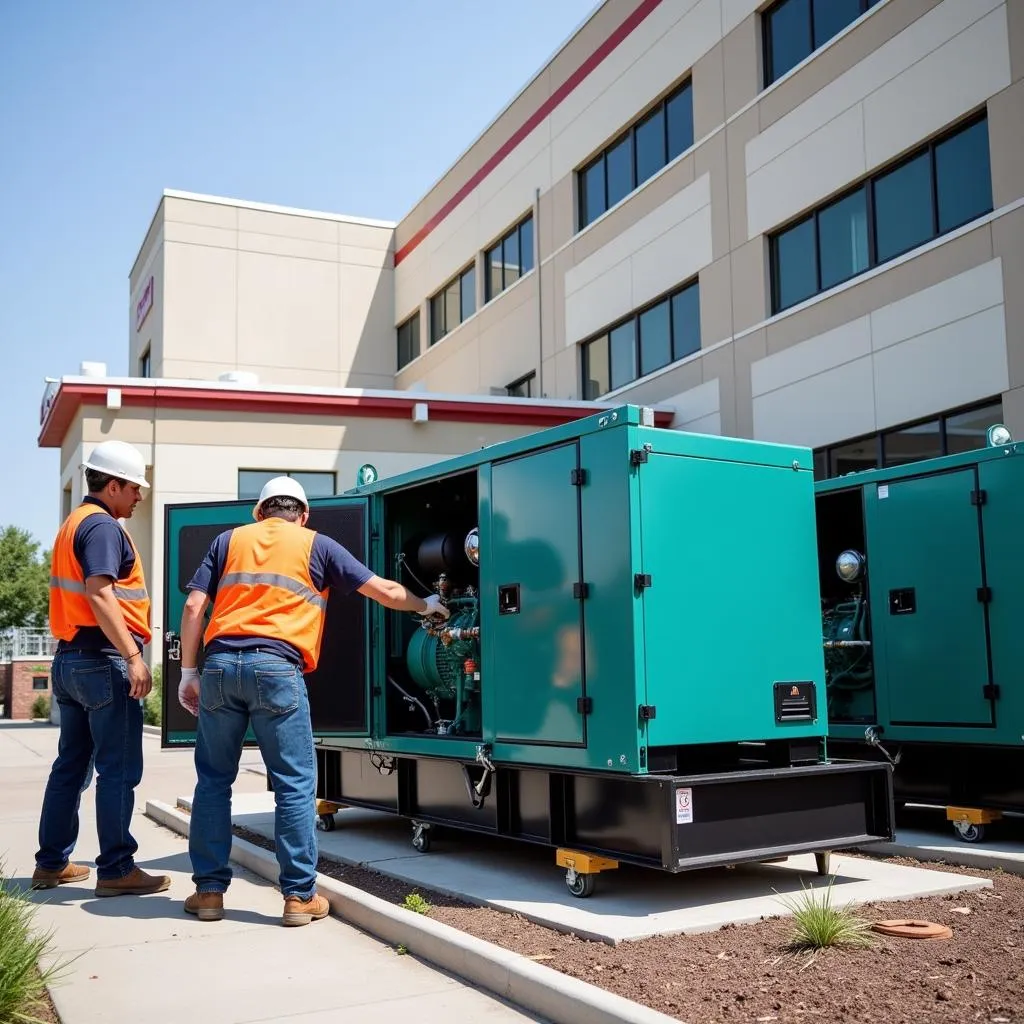A Hospital Backup Generator is not just a piece of equipment; it’s a lifeline. In the event of a power outage, it ensures the continuous operation of critical medical equipment, lighting, and life support systems. For hospitals, maintaining power isn’t just about convenience; it’s about saving lives.
Why Hospitals Need Backup Generators
Hospitals require a consistent and reliable power supply 24/7. Unlike other businesses that can afford to shut down during an outage, hospitals don’t have that luxury.
Here’s why a hospital backup generator is non-negotiable:
- Patient Safety: Continuous power ensures life-saving procedures are never interrupted.
- Equipment Functionality: Sophisticated medical equipment like ventilators, surgical tools, and imaging devices rely on uninterrupted power.
- Data Preservation: Electronic health records (EHR), patient monitoring systems, and other critical data must be protected from power failures.
- Safety and Security: Lighting, security systems, and communication networks need to remain operational for the safety of patients and staff.
Types of Hospital Backup Generators
Hospitals have specific needs, and the backup generator system needs to be robust and reliable. Common types of generators used in hospitals include:
- Diesel Generators: Known for their reliability and ability to handle large loads, diesel generators are a popular choice for hospitals.
- Natural Gas Generators: These generators offer cleaner emissions compared to diesel and can run for extended periods, making them suitable for areas with access to natural gas lines.
- Bi-Fuel Generators: Combining the benefits of diesel and natural gas, bi-fuel generators offer fuel flexibility and extended run times.
Key Considerations When Choosing a Backup Generator
Selecting the right backup generator is crucial for a hospital’s emergency preparedness. Here are key factors to consider:
- Power Requirements: Conduct a comprehensive assessment of the hospital’s power needs to determine the generator’s required capacity.
- Fuel Storage: Consider fuel storage capacity and availability, especially for extended power outages.
- Emissions Regulations: Ensure the generator complies with local environmental regulations.
- Installation and Maintenance: Factor in the costs associated with installation, regular maintenance, and testing.
 Technicians Installing a Hospital Backup Generator
Technicians Installing a Hospital Backup Generator
Ensuring Backup Generator Reliability
A backup generator is only effective if it works when needed. Regular maintenance and testing are essential to ensure reliability:
- Routine Inspections: Conduct regular visual inspections of the generator, checking for leaks, damage, and proper fluid levels.
- Load Bank Testing: Simulate a power outage to test the generator’s ability to handle the hospital’s full electrical load.
- Preventative Maintenance: Schedule routine maintenance with qualified technicians to address wear and tear, replace parts, and ensure optimal performance.
The Future of Hospital Backup Power
As technology advances, so do backup power solutions. The future of hospital backup power is moving towards smarter, more efficient systems:
- Microgrids: Hospitals are exploring microgrid systems that incorporate renewable energy sources like solar and wind, enhancing energy resilience and sustainability.
- Energy Storage Systems: Integrating battery storage solutions with backup generators can further improve reliability and efficiency.
- Smart Monitoring and Control: Advanced monitoring systems provide real-time data on generator performance, enabling proactive maintenance and remote troubleshooting.
Conclusion
A hospital backup generator is an indispensable investment in patient safety and operational continuity. By understanding the importance of backup power, choosing the right system, and prioritizing regular maintenance, hospitals can ensure they are prepared to weather any power outage and continue delivering critical care without interruption.
FAQs
How long can a hospital backup generator run?
The run time of a hospital backup generator varies depending on its fuel capacity and the hospital’s power needs. Many generators are designed to run for at least 24-48 hours, with some capable of operating for extended periods with adequate fuel supply.
What happens if a hospital backup generator fails?
Hospitals have contingency plans in place in case of a backup generator failure. These plans may involve transferring critical patients to other facilities or using alternative power sources if available.
Are there regulations regarding hospital backup generators?
Yes, healthcare facilities are subject to regulations and standards, such as those set by the Joint Commission, that mandate the availability and testing of backup power systems.
Do hospitals test their backup generators regularly?
Yes, hospitals are required to conduct regular testing of their backup generators to ensure they function properly in an outage. These tests typically involve simulating a power outage and assessing the generator’s performance.
What is the cost of a hospital backup generator?
The cost of a hospital backup generator can vary greatly depending on factors like power capacity, fuel type, and installation requirements. It’s best to consult with generator suppliers and installers to obtain accurate cost estimates.
Need more information or have questions about backup power solutions for your hospital?
Contact us at Phone Number: 02437655121, Email: [email protected] Or visit our address: 298 Cau Dien Street, Minh Khai, Bac Tu Liem, Hanoi, Vietnam. We have a 24/7 customer support team.